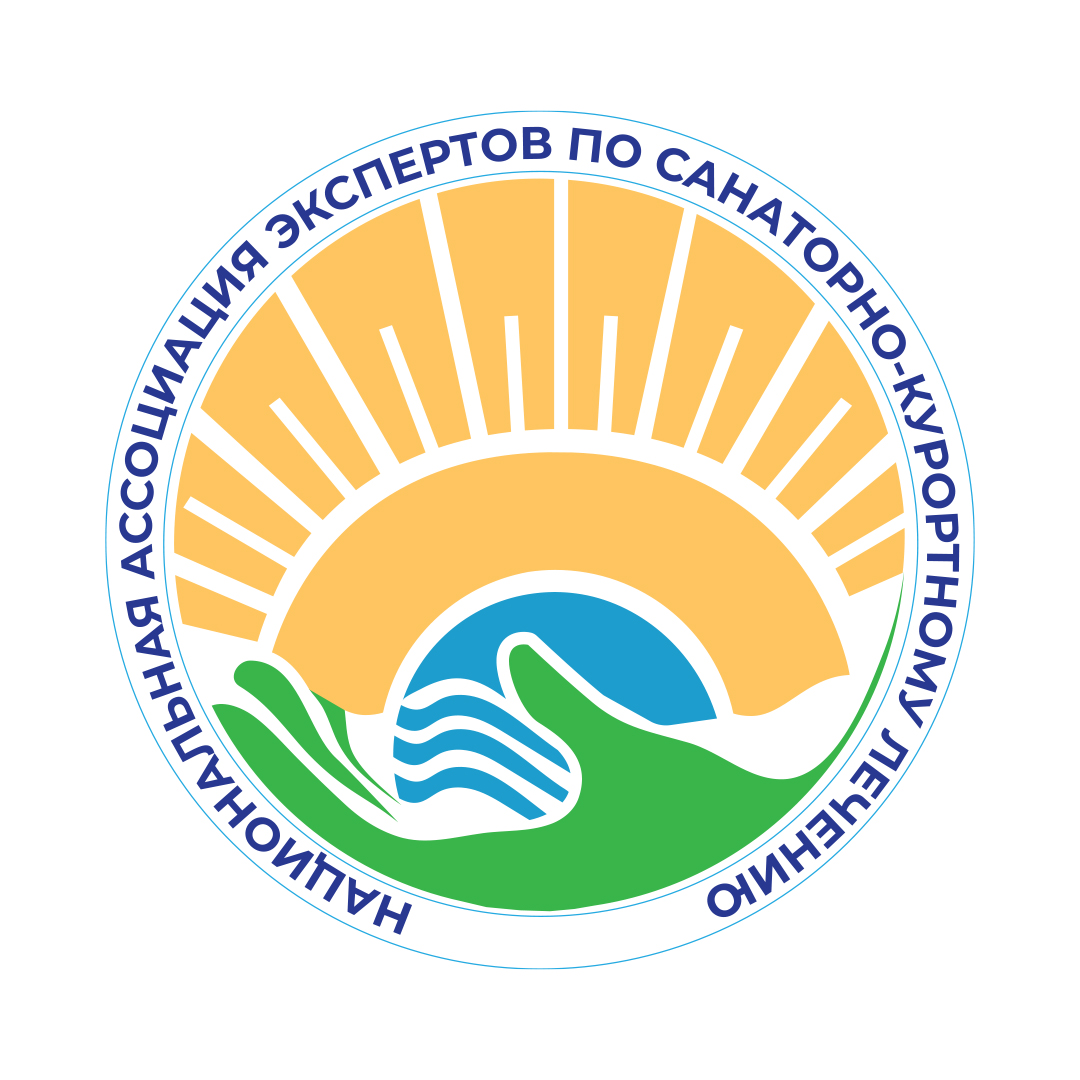Выпуск 3-20, 2021
Обзорная статья
Методологические подходы к оценке результатов теста с шестиминутной ходьбой у больных ишемической болезнью сердца
1 ![]() Михайловская Т.В., 1
Михайловская Т.В., 1 ![]() Назарова О.А., 1
Назарова О.А., 1 ![]() Довгалюк Ю.В., 1
Довгалюк Ю.В., 1 ![]() Чистякова Ю.В., 1
Чистякова Ю.В., 1 ![]() Мишина И.Е.
Мишина И.Е.
1 Ивановская государственная медицинская академия Минздрава России, Иваново, Россия
РЕЗЮМЕ
Тест с шестиминутной ходьбой (ТШХ) является относительно простым и изученным методом оценки толерантности к физической нагрузке. Несмотря на широкое применение, до настоящего времени отсутствуют единообразные подходы к оценке результатов тестирования у больных ишемической болезнью сердца (ИБС).
ЦЕЛЬ. Представление научного обоснования и практических рекомендаций по использованию различных подходов к оценке и интерпретации результатов ТШХ у больных ИБС. Исследователями подчеркивается важность соблюдения протокола тестирования для обеспечения высокой точности и воспроизводимости результатов. Величина пройденной дистанции в ТШХ зависит от пола, возраста, антропометрических и эхокардиографических показателей. Выполнение нескольких тестов у одного и того же пациента не может быть рекомендовано в связи с возможным развитием «эффекта обучения» у пациента. Было показано прогностическое значение результатов ТШХ у больных с различной патологией. Величина пройденной дистанции в ТШХ ≤ 300 метров у больных с сердечной недостаточностью со сниженной фракцией выброса была ассоциирована с достоверным повышением риска смерти и сердечно-сосудистых событий, стабильные результаты ТШХ в течение одного года были сопряжены с более высокой выживаемостью больных. Использование ТШХ в оценке эффективности кардиореабилитации больных привело к формированию концепции «минимально клинически значимой разницы» (МКЗР). Поданным литературы, МКЗР пройденной дистанции ТШХ у пациентов, перенесших острый коронарный синдром, составила 25 метров. В статье приведены данные собственных исследований, основные способы и примеры расчета изменений дистанции ТШХ. Полученные результаты свидетельствуют о том, что комплексный анализ и одновременное использование нескольких способов оценки результатов ТШХ способствуют более точному определению результатов реабилитации. Таким образом, ТШХ является доступным способом оценки толерантности к физической нагрузке у больных ИБС и может быть использован для оценки изменений функционального статуса пациентов.
КЛЮЧЕВЫЕ СЛОВА: тест с шестиминутной ходьбой, толерантность к физической нагрузке, физические тренировки, должные значения, ишемическая болезнь сердца, острый коронарный синдром, острый инфаркт миокарда, хроническая сердечная недостаточность, реабилитация
ИСТОЧНИК ФИНАНСИРОВАНИЯ: Авторы заявляют об отсутствии финансирования при проведении исследования
КОНФЛИКТ ИНТЕРЕСОВ: Авторы декларируют отсутствие явных и потенциальных конфликтов интересов, связанных с публикацией настоящей статьи
ДЛЯ ЦИТИРОВАНИЯ: Михайловская Т.В., Назарова О.А., Довгалюк Ю.В., Чистякова Ю.В., Мишина И.Е. Методологические подходы к оценке результатов теста с шестиминутной ходьбой у больных ишемической болезнью сердца. Вестник восстановительной медицины. 2021; 20 (3): 37-44. https://doi.org/10.38025/2078-1962-2021-20-3-37-44
ДЛЯ КОРРЕСПОНДЕНЦИИ:
Михайловская Татьяна Валентиновна, e-mail: tanyadoc8484@mail.ru
Список литературы:
- Taylor R.S., Sagar V.A., Davies E.J., Briscoe S., Coats A.J.S., Dalal H. et al. Exercise-based rehabilitation for heart failure. Cochrane Database of Systematic Reviews. 2014; (4): CD003331. https://doi.org/10.1002/14651858
- Linke A. Antioxidative Effects of Exercise Training in Patients With Chronic Heart Failure: Increase in Radical Scavenger Enzyme Activity in Skeletal Muscle. Circulation. 2005; 111(14): 1763-1770. https://doi.org/10.1161/01.CIR.0000165503.08661.E5
- Gielen S., Adams V., Linke A., Erbs S., Mobius-Winkler S., Schubert A. et al. Exercise training in chronic heart failure: correlation between reduced local inflammation and improved oxidative capacity in the skeletal muscle. European Journal of Cardiovascular Prevention and Rehabilitation. 2005; 12(4): 393-400.
- Арутюнов Г.П., Колесникова Е.А., Рылова А.К. Эффективность физических тренировок как составляющей части реабилитации больных после перенесенного инфаркта миокарда. Сердце: журнал для практикующих врачей. 2009; 8(2): 73-77.
- Арутюнов Г.П. Кардиореабилитация. МЕДпресс-информ. М. 2013: 336 с.
- Arena R., Myers J., Guazzi M. Cardiopulmonary Exercise Testing Is a Core Assessment for Patients with Heart Failure. Congestive Heart Failure. 2011; 17(3): 115-119. https://doi.org/10.1111/j.1751-7133.2011.00216.x
- Balke B. A simple field test for the assessment of physical fitness. Civil Aeromedical Research Institute US. 1963; (53): 1-8.
- ATS Committee on Proficiency Standards for Clinical Pulmonary Function Laboratories. ATS statement: guidelines for the sixminute walk test. American Journal of Respiratory and Critical Care Medicine. 2002; (166): 111-117. https://doi.org/10.1164/ajrccm.166.1.at1102
- Yap J., Lim F.Y., Gao F. et al. Correlation of the New York heart association classification and the 6-minute walk distance: a systematic review. Clinical Cardiology. 2015; (38): 621-628. https://doi.org/10.1002/clc.22468
- Bellet R.N., Francis R.L., Jacob J.S. et al. Repeated six-minute walk tests for outcome measurement and exercise prescription in outpatient cardiac rehabilitation: a longitudinal study. Archives of Physical Medicine and Rehabilitation. 2011; 92(9): 1388-1394. https://doi.org/10.1016/j.apmr.2011.04.014
- Арутюнов Г.П., Колесникова Е.А., Беграмбекова Ю.Л., Орлова Я.А., Рылова А.К., Аронов Д.М. Рекомендации по назначению физических тренировок пациентам с хронической сердечной недостаточностью. Журнал Сердечная Недостаточность. 2017; 18(1): 41-66. https://doi.org/10.18087/rhfj.2017.1.2339
- Fan Y., Gu X., Zhang H. Prognostic value of six-minute walk distance in patients with heart failure: A meta-analysis. European Journal of Preventive Cardiology. 2019; 26(6): 664-667. https://doi.org/10.1177/2047487318797400
- Wijns W., Kolh P., Danchin N. et al. Guidelines on myocardial revascularization. ESC /EACTS Guidelines. European Heart Journal. 2010; (31): 2501-2555. https://doi.org/10.1093/eurheartj/ehq277
- American College of Sports Medicine. ACSM’s Guidelines for Exercise Testing and Prescription, 9 th ed. Baltimor. Wolters Kluwer. Lippincott Williams & Wilkins. 2014: 482 р.
- Guazzi M., Dickstein K., Vicenzi M. et al. Six-minute walk test and cardiopulmonary exercise testing in patients with chronic heart failure: a comparative analysis on clinical and prognostic insights. Circulation. Heart Failure. 2009; (2): 549-555.
- Casillas J.M, Hannequin A., Besson D. et al. Walking tests during the exercise training: specific use for the cardiac rehabilitation. Annals of Physical and Rehabilitation Medicine. 2013; 56(7-8): 5615-75. https://doi.org/10.1016/j.rehab.2013.09.003
- Wu G., Sanderson B., Bittner V. The 6-minute walk test: how important is the learning effect? American Heart Journal. 2003; 146(1): 129-133. https://doi.org/10.1016/S0002-8703(03)00119
- Spencer L., Zafiropoulos B., Denniss W. et al. Is there a learning effect when the 6-minute walk test is repeated in people with suspected pulmonary hypertension? Chronic Respiratory Disease. 2018; 1479972317752762.
- Adsett J., Mullins R., Hwang R. et al. Repeat six-minute walk tests in patients with chronic heart failure: are they clinically necessary? European Journal of Cardiovascular Prevention & Rehabilitation. 2011; 18(4): 601-606. https://doi.org/10.1177/1741826710389403
- Gayda M., Temfemo A., Choquet D., Ahmaidi S. Cardiorespiratory requirements and reproducibility of the six-minute walk test in elderly patients with coronary artery disease. Archives of Physical Medicine and Rehabilitation. 2004; (85): 1538-1543. https://doi.org/10.1016/j.apmr.2003.11.037
- Hanson L.C., McBurney H., Taylor N.F. The retest reliability of the six-minute walk test in patients referred to a cardiac rehabilitation programme. Physiotherapy Research International. 2012; 17(1): 55-61. https://doi.org/10.1002/pri.513
- Ingle L., Rigby A.S., Nabb S. et al. Clinical determinants of poor six-minute walk test performance in patients with left ventricular systolic dysfunction and no major structural heart disease. European Journal of Heart Failure. 2006; (8): 321-325.
- Curtis J.P., Rathore S.S., Wang Y. et al. The association of 6-minute walk performance and outcomes in stable outpatients with heart failure. Journal of Cardiac Failure. 2004; (10): 9-14.
- Forman D.E., Fleg J.L., Kitzman D.W. et al. 6-min walk test provides prognostic utility comparable to cardiopulmonary exercise testing in ambulatory outpatients with systolic heart failure. Journal of the American College of Cardiology. 2012; (60): 2653-2661.
- Omar H.R., Guglin M. The longitudinal relationship between six-minute walk test and cardiopulmonary exercise testing, and association with symptoms in systolic heart failure: analysis from the ESCAPE trial. European Journal of Internal Medicine. 2017; (40): e26-e28.
- Singh S.J., Puhan M.A., Andrianopoulos V. et al. An official systematic review of the European Respiratory Society/American Thoracic Society: measurement properties of field walking tests in chronic respiratory disease. European Respiratory Journal. 2014; 44(6): 1447-1478. https://doi.org/10.1183/09031936.00150414
- Bellet R.N., Adams L., Morris N.R. The 6-minute walk test in outpatient cardiac rehabilitation: validity, reliability and responsiveness - a systematic review. Physiotherapy. 2012; 98(4): 277-286. https://doi.org/10.1016/j.physio.2011.11.003
- Arslan S., Erol M.K., Gundogdu F. et al. Prognostic value of 6-minute walk test in stable outpatients with heart failure. Texas Heart Institute Journal. 2007; (34): 166-169.
- Giannitsi S., Bougiakli M., Bechlioulis A., Kotsia A., Michalis L.K., Naka K.K. 6-minute walking test: a useful tool in the management of heart failure patients. Therapeutic Advances in Cardiovascular Disease. 2019; V.13: 1-10. https://doi.org/10.1177/1753944719870084
- Ciani O., Piepoli M., Smart N. et al. Validation of exercise capacity as a surrogate endpoint in exercise-based rehabilitation for heart failure: a metaanalysis of randomized controlled trials. Journal of the American College of Cardiology: Heart Failure. 2018; (6): 596-604.
- Ingle L., Cleland J.G. and Clark A.L. The relation between repeated 6-minute walk test performance and outcome in patients with chronic heart failure. Annals of Physical and Rehabilitation Medicine. 2014; (57): 244-253.
- Ferreira J.P., Duarte K., Graves T.L. et al. Natriuretic peptides, 6-min walk test, and qualityof-life questionnaires as clinically meaningful endpoints in HF trials. Journal of the American College of Cardiology. 2016; (68): 2690-2707.
- Hassan A.K., Dimitry S.R., Agban G.W. Can exercise capacity assessed by the 6-minute walk test predict the development of major adverse cardiac events in patients with STEMI after fibrinolysis? PLoS One. 2014; 9(6): e99035. https://doi.org/10.1371/journal.pone.0099035
- Dasari T.W., Patel B., Wayangankar S.A. et al. Prognostic Value of 6-Minute Walk Distance in Patients Undergoing Percutaneous Coronary Intervention: a Veterans Affairs Prospective Study. Texas Heart Institute Journal. 2020; 47(1): 10-4. https://doi.org/10.14503/THIJ-17-6471
- La Rovere M.T., Pinna G.D., Maestri R. The 6-minute walking test and all-cause mortality in patients undergoing a post-cardiac surgery rehabilitation program. European Journal of Preventive Cardiology. 2015; 22(1): 20-6. https://doi.org/10.1177/2047487313502405
- Cacciatore F., Abete P., Mazzella F. et al. Six-minute walking test but not ejection fraction predicts mortality in elderly patients undergoing cardiac rehabilitation following coronary artery bypass grafting. European Journal of Cardiovascular Prevention & Rehabilitation. 2012; (19): 1401-09. https://doi.org/10.1177/1741826711422991
- Chen Y.C., Chen K.C., Lu L.H. et al. Validating the 6-minute walk test as an indicator of recovery in patients undergoing cardiac surgery. A prospective cohort study. Medicine. 2018; (97): 42(e12925). https://doi.org/10.1097/MD.0000000000012925
- Beatty A.L., Schiller N.B., Whooley M.A. Six-minute walk test as a prognostic tool in stable coronary heart disease: data from the Heart and Soul Study. Archives of Internal Medicine. 2012; 172(14): 1096-1102. https://doi.org/10.1001/archinternmed.2012.2198
- Kamiya K., Hamazaki N., Matsue Y., Mezzani A., Corra U. et al. Gait speed has comparable prognostic capability to six-minute walk distance in older patients with cardiovascular disease. European Journal of Preventive Cardiology. 2018; V.25(2): 212-219. https://doi.org/10.1177/2047487317735715
- Tallaj J., Sanderson B., Breland J. et al. Assessment of functional outcomes using the 6-minute walk test in cardiac rehabilitation: comparison of patients with and without left ventricular dysfunction. Journal of Cardiopulmonary Rehabilitation. 2001; (21): 221-4. https://doi.org/10.1097/00008483-200107000-00005
- Fiorina C., Vizzardi E., Lorusso R. et al. The 6-min walking test early after cardiac surgery. Reference values and the effects of rehabilitation program. European Journal of Cardio-Thoracic Surgery. 2007; 32(5): 724-729. https://doi.org/10.1016/j.ejcts.2007.08.013
- Tager T., Hanholz W., Cebola R. et al. Minimal important difference for 6-minute walk test distances among patients with chronic heart failure. International Journal of Cardiology. 2014; (176): 94-98.
- Gremeaux V., Troisgros O., Benaim S., Hannequin A., Laurent Y. et al. Determining the minimal clinically important difference for the six-minute walk test and the 200-meter fast-walk test during cardiac rehabilitation program in coronary artery disease patients after acute coronary syndrome. Archives of Physical Medicine and Rehabilitation. 2011; 92(4): 611-619. https://doi.org/10.1016/j.apmr.2010.11.023
- Troosters T., Gosselink R., Decramer M. Six-minute walking distance in healthy elderly subjects. European Respiratory Journal. 1999; (1): 270-4. https://doi.org/10.1034/j.1399-3003.1999.14b06.x
- Enright P.L. The six-minute walk test. Respiratory Care. 2003; (48): 783-785.
- Enright P.L. and Sherrill D.L. Reference equations for the six-minute walk in healthy adults. American Journal of Respiratory and Critical Care Medicine. 1998; (158): 1384-1387.

Контент доступен под лицензией Creative Commons Attribution 4.0 License.
©
Эта статья открытого доступа по лицензии CC BY 4.0. Издательство: ФГБУ «НМИЦ РК» Минздрава России.




